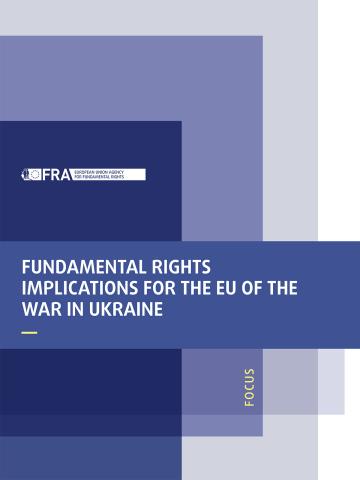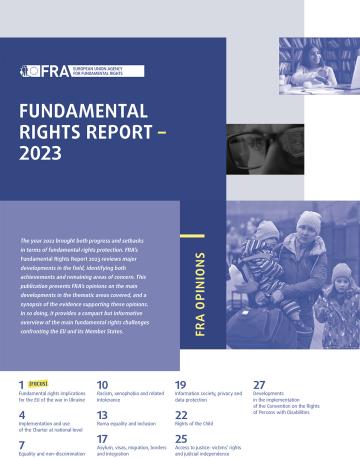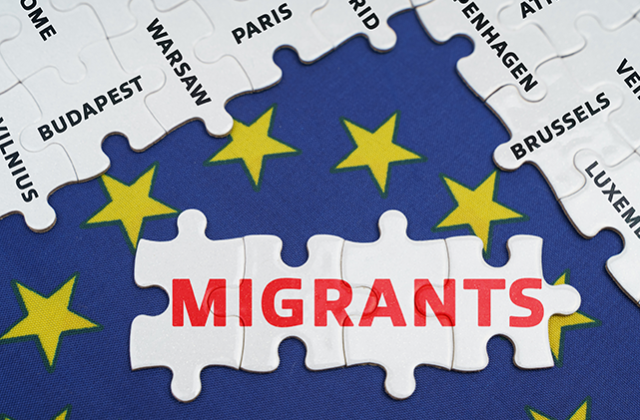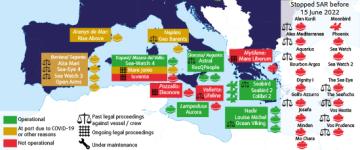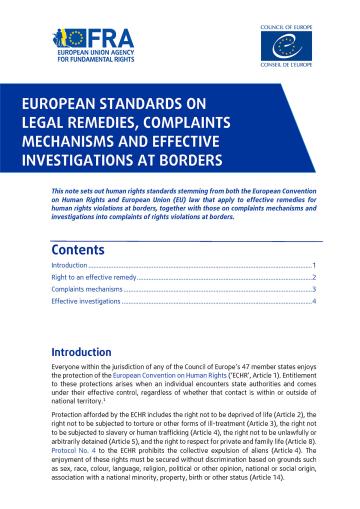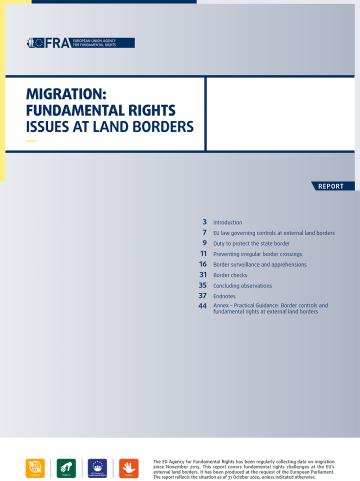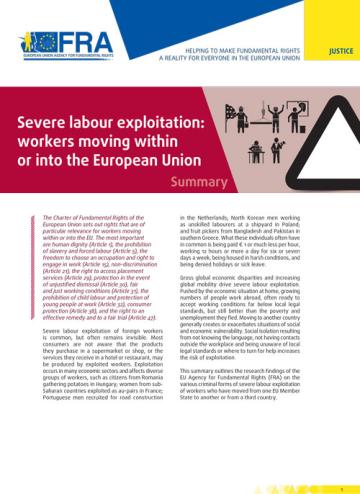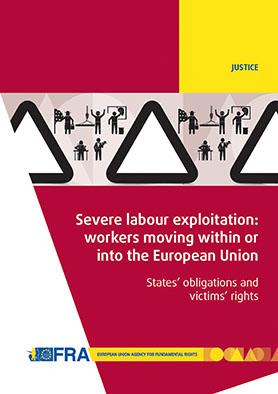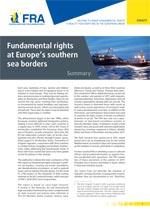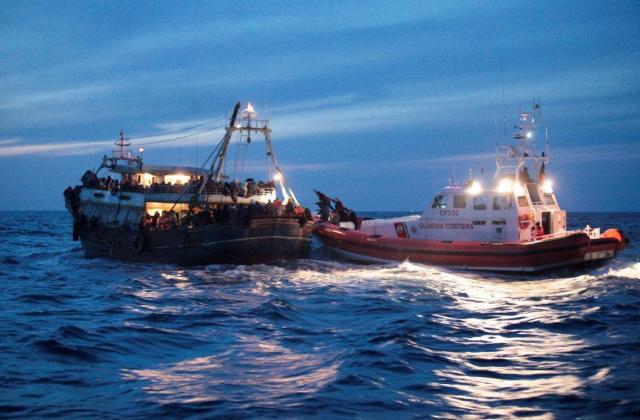
Preventing and responding to deaths at sea: what the European Union can do
Search inside this publication
- Foreword
- Introduction
- 1. Prompt, effective and independent investigations
- 2. Improved search and rescue at sea
- 3. Clear disembarkation rules and solidarity for taking charge of rescued people
- 4. Better protection of shipwreck survivors
- 5. Establishing independent border monitoring
- 6. More accessible legal pathways to the EU
- About this publication
5. Establishing independent border monitoring
The European Commission has suggested establishing independent monitoring mechanisms to ensure respect of fundamental rights. [69]
European Commission (2020), New Pact on Migration and Asylum; European Commission (2020), Communication on a New Pact on Migration and Asylum, COM(2020)609 final, Brussels, 23 September 2020.
This was proposed in September 2020, when presenting the Pact on Migration and Asylum. Since then, FRA has promoted the creation of national independent monitoring mechanisms, covering also a range of border management activities. These include border surveillance, apprehensions at land, sea and air borders, and the operation of referral mechanisms.
FRA published general guidance [70]
FRA (2022), Establishing national independent mechanisms to monitor fundamental rights compliance at EU external borders, 14 October 2022.
to help EU Member States set up national independent mechanisms to monitor fundamental rights compliance at EU external borders. This was a request by the European Commission in October 2022 following the proposed Screening Regulation tabled by the European Commission. [71]
European Commission (2020), Proposal for a Regulation introducing a screening of third country nationals at the external borders and amending Regulations (EC) No 767/2008, (EU) 2017/2226, (EU) 2018/1240 and (EU) 2019/817, COM(2020)612 final, Brussels, 23 September 2020.
FRA has published the guidance in eight EU languages thus far, including Greek.
When discussing putting the guidance into practice, experts stressed the need for consistency with other national bodies entrusted with the protection of fundamental rights. Experts underlined the important role of national human rights institutions and flagged the need to develop protocols to access information and data from surveillance assets relevant to fundamental rights. [72]
FRA (2022), ‘Establishing independent and effective national border monitoring mechanisms: Expert meeting’, news item, 22 November 2022.
The tragic incident reiterates the value of having independent and effective national mechanisms to monitor fundamental rights at borders. [73]
See also United Nations Office of the High Commissioner for Human Rights, Press Briefing Note, Loss of life in Mediterranean “horrific tragedy” – Türk, 16 June 2023. More generally, according to a study requested by the LIBE Committee of the European Parliament, “the EU Fundamental Rights Agency 2022 Guidance on ‘Establishing national independent mechanisms to monitor fundamental rights compliance at the EU external borders’, should be made mandatory and conditional for EU Member States if they are to be granted EU funding on issues related to border management” (Carrera, S.; Colombi, D.; and Cortinovis, R. (2023), An Assessment of the State of the EU Schengen Area and its External Borders, Study requested by the LIBE Committee of the European Parliament, European Parliament, Policy Department for Citizens’ Rights and Constitutional Affairs, PE 737.109 – May 2023, p. 14).
An effective and independent fundamental rights border-monitoring system is preventative, as it reduces the risk of fundamental rights violations. It also enhances the protection of victims of fundamental rights violations, by strengthening the application of fundamental rights safeguards already in place and providing expert advice when needed. At the same time, it can support domestic investigations of allegations against public authorities by providing objective, evidence-based and unbiased analysis and reporting. This improves transparency and accountability, and thus enhances trust in public authorities.







